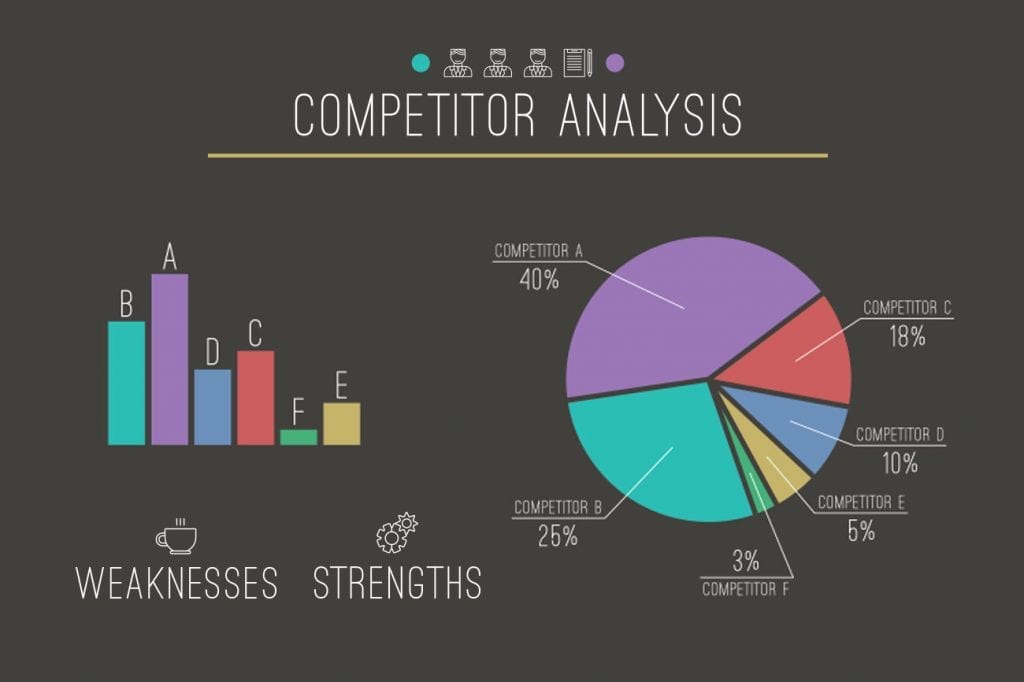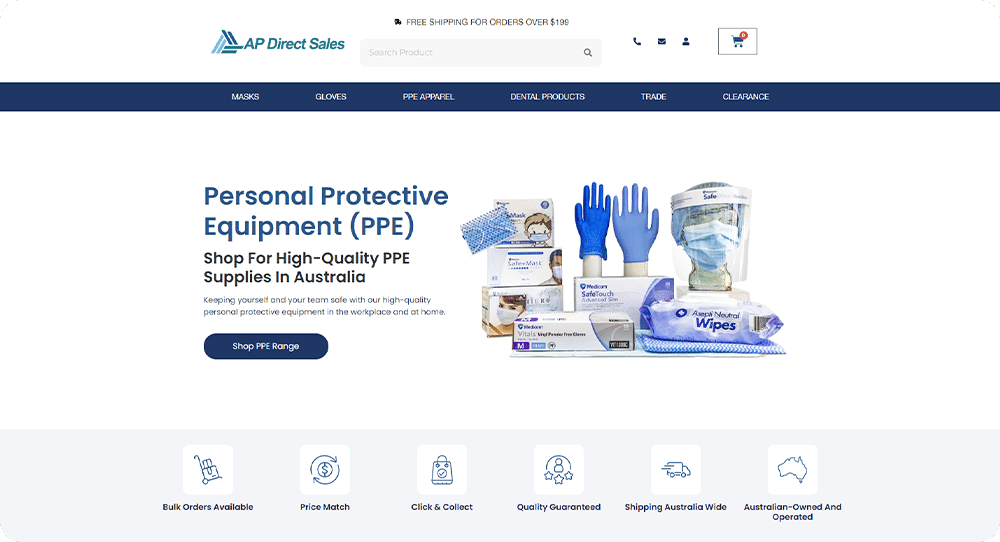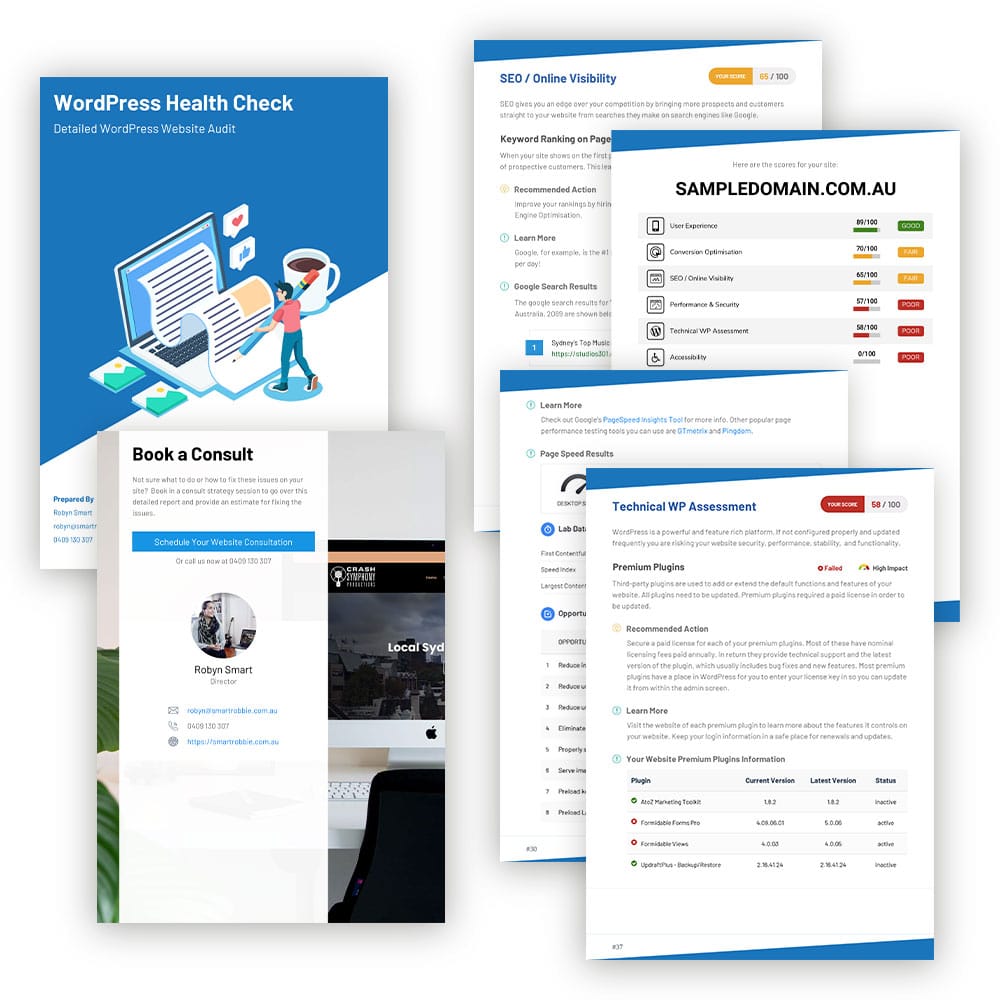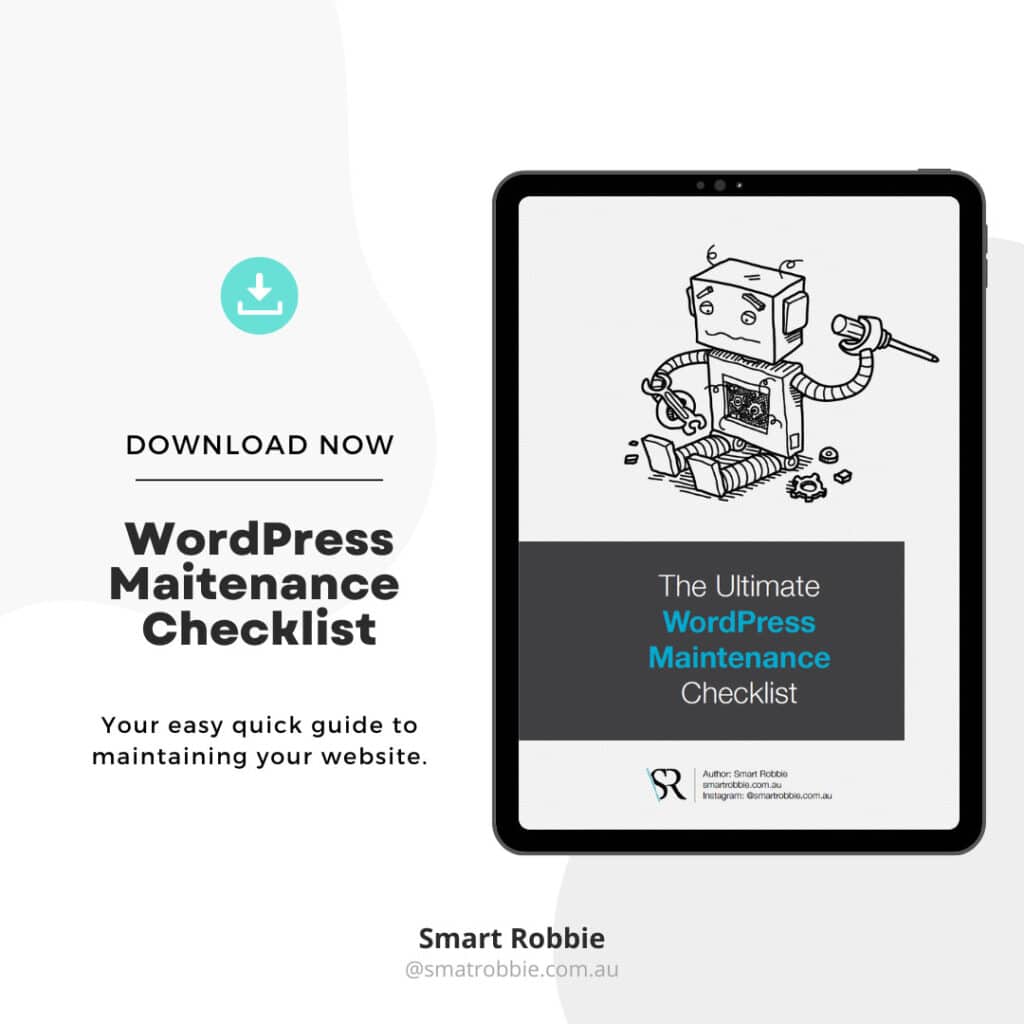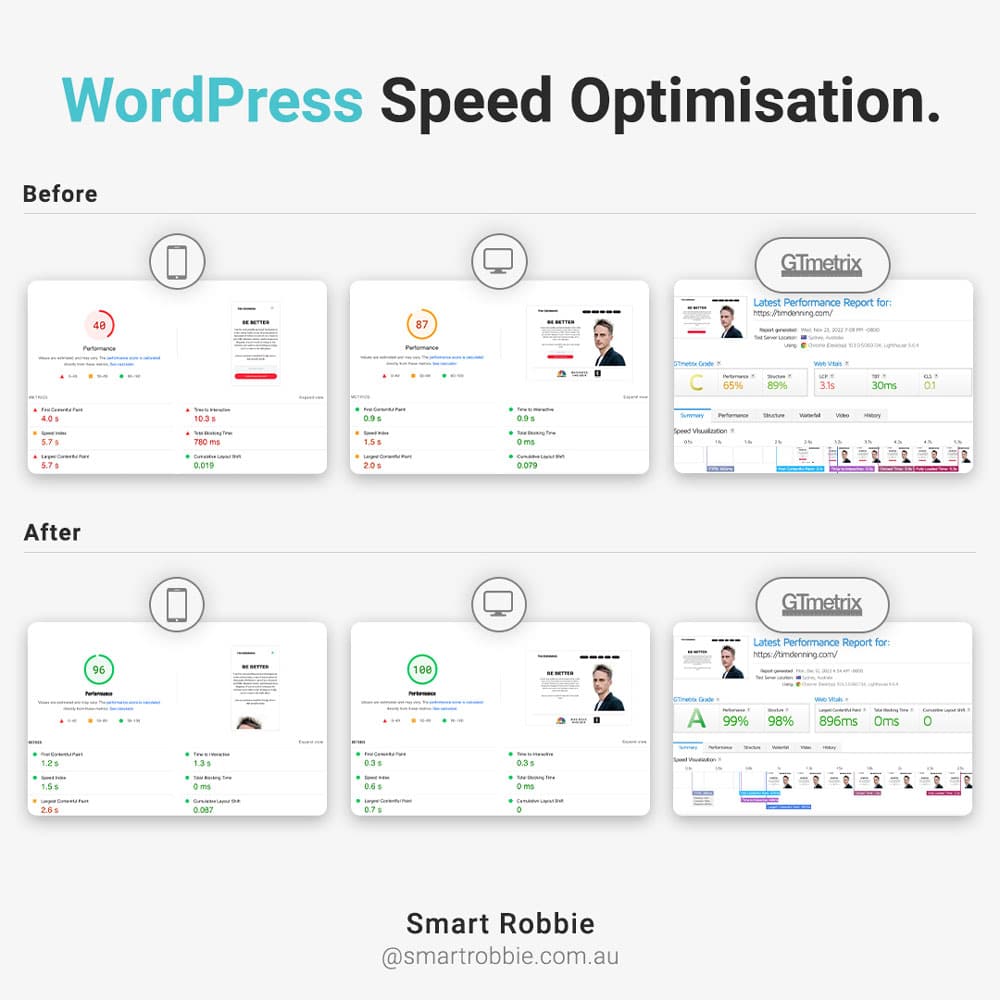SEO Competitor Analysis: Discover your competitor’s keywords and backlinks
Find out what your competitors are doing and do it better.
Not getting enough traffic to your website?
Not ranking compared to your competitors?
Your competitors can be your greatest allies if you allow them. Their websites are a goldmine of information! SEO Competitor analysis is a key aspect to add to your SEO strategies.
What if you could reverse engineer someone else’s success and identify their weaknesses and gaps? Find their strengths and replicate them?
Get an insight into the strategies that work for others in your market so that you can adopt them, improve them and grow your own business.
In this article, we are going to concentrate on 3 SEO metrics to analyse your competition – organic keyword visibility, backlink strategies, and competitor domain authority, all of which you can use to gain and grown your own sites organic traffic.

Big Picture of SEO Competitor Analysis
Traffic Analytics
- Find out where your rivals concentrate most of their marketing efforts
- Discover their websites’ traffic, audience and link sources
- Analyse their location presence
Domain Overview
- Get a bird’s-eye view of your competitors SEM Strategies
- Delve into their advertising strategies and tactics
- Evaluate their online performance
Organic Reach
- Learn about your competitors’ most successful SEO practices
- See the domains you are competing with for the top positions in Google
- Break down their keyword strategies
Keyword Gap
- Identify competitors’ target keywords you’ve overlooked
- Discover keyword opportunities to boost your ROI
- Find keywords for your SEO and AdWords campaigns
Backlink Analytics
- In-depth analysis of your competitors’ backlinks
- Explore their referring domains
- Discover link-building opportunities by watching your competitors’ lost links
Backlink Gap
- Find and evaluate the websites linking to your competitors but not to you
- Compare your backlink profile against your competitors’
- Get a list of domains to target in your link-building campaign?

Why do you need to do an SEO Competitive Analysis?
SEO competitive analyses is important because it gives us the data and strategies in the industry we are in to start improving what you are doing.
So what are some benefits?
- Grow your traffic using resources available to you
- Find keywords with high search volumes that you haven’t targeted yet
- Find keywords that give your competitors the advantage and highest ROI
- What content you might be missing on your site to help improve your user experience
- Where do your competitors rank compared to your website?
- Gain new audiences by reviewing where their traffic and backlinks are coming from
Identify your top competitors
You probably know who your top 5 competitors are. It’s still important to do some research around your competitors to see if there are any companies you wouldn’t have thought of.
One simple way of finding competitors is by Google search results for your ideal keywords. Record the top paid and organic results.
What are the top 3 SEO competitor Analysis metrics?
Once you know your competitors, it’s time to review the. For each competitor, the top 3 matrics to review are:
- Domain Authority – the overall authority of their website
- Link building / Backlinks – the number of domains that link to the site
- Organic Keyword Research Analysis
Why is Domain Authority important?
Each website has a ranking of 1-100, 100 being the highest ranking you can get on the web. A high Domain Authority (DA) score indicates the website has a solid backlink profile. You can use Moz Toolbar to help identify the DA of a website.
For example, these websites have the following domain authority:
- YouTube – 99
- Facebook – 95
- The Guardian – 95
- Sydney Morning Herald – 93
- Google – 92
- Daily Telegraph – 89
- Woolworths – 68
- Foxtel – 68
- Appliances Online – 57
- Bing Lee – 55
- Winnings Appliances – 41
- Brand new websites start at 1/100
If you are a brand new website trying to sell appliances with a domain authority of 1/100, it will pretty hard to outrank your competitor Appliance Online who have a higher domain authority of 57/100.
One way to help improve your domain authority is through link building (backlinks).

Competitor Link Building / Backlinks Analysis
Reveal Traffic Sources of your competitors
- Where do they get their traffic from?
- Who are their most active Affiliates?
- Which domain is worth trying to get a backlink from?
- If they acquired any new partners
- What landing pages do the backlinks point to?
So what is link building/backlinks?
Link building is where you get someone to put a link on their website which links directly to your website – a new referring domain. The goal is to get as many links as you can on high authority websites.
When link profile, you can review the following:
- What is the domain authority of the website? Ideal if the DA is high.
- Is it a follow or no-follow link? Follow links are ideal.
- Is the link relevant to the page?
- What is the domain spam ranking? Ideal to have a low spam ranking.
- What anchor text do they use for the link?
- What type of content do they provide on the backlink?
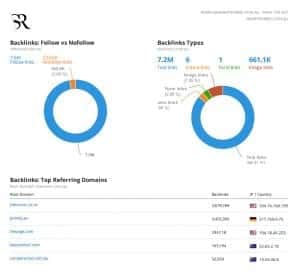
Another important factor to consider is traffic by location.
Knowing which countries your competitors get bulk of their traffic from might help understand if there is an opportunity there. For example, if you only sell to Australians, but one link has a majority of the traffic from the United States versus another link which drives more traffic from Australians, this will narrow down which links to prioritise first.
By targeting the same backlinks that already link to your competitors, you can start boosting your own domain authority.
How can you build backlinks? Some examples include:
- Providing testimonials
- Guest blogging
- Providing facts or statements to add to their articles
- Sending them links to your products

Competitor Organic Keyword Analysis
Identify your high ROI keyword opportunities for your site by reviewing your competitor’s organic keyword rankings. Naturally, the higher the search volumes are for the organic keywords, the better the site is performing.
By researching your competitors, you will find paid, organic and opportunity keywords.
Once you have your competitor keywords, it’s time to analyse those keywords.
Step 1: Start filtering out keywords
Start reviewing the organic searched keywords you have gathered and look at the competition of each keyword.
You want to identify keywords that suggest easy, low competition targets.
To narrow this down, first, eliminate keywords that are obviously too competitive. You don’t need to delete these as they will come in handy in the future once you have built up your website authority and overall SEO rankings.
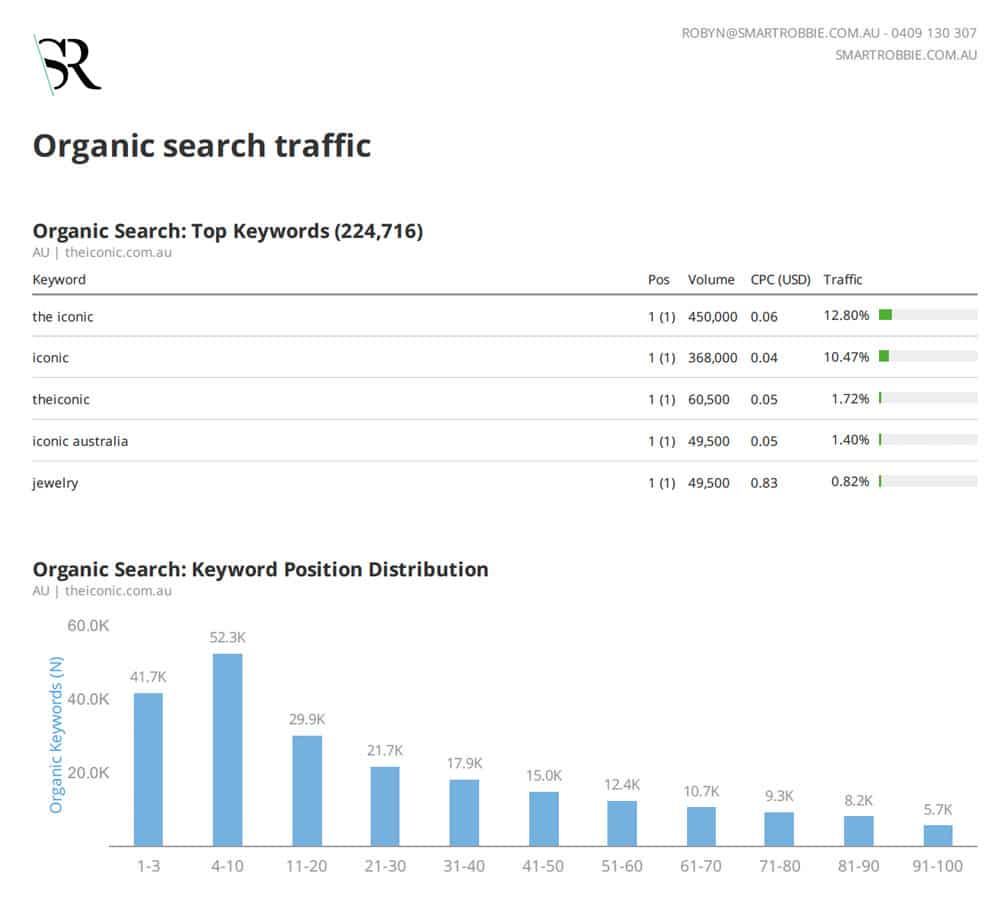
Step 2: Dig deeper
Once you have completed step 1, you will have a smaller list of keywords to review. Review this list and start taking out any keywords that don’t make sense for your website.
Now compare these keywords to a with some of these metrics:
- Where do you currently rank for these keywords?
- What is your domain authority compared to those who hold the top 7 positions?
- Can you create good quality content for these keywords? {Are there any content gaps? (This is content for keywords which your competitors rank for, but your site doesn’t.)
- What are your competitors most popular content?
From this review, you will be able to identify some quick wins where you might be able to tweak some content to rank higher
Step 3: Decide which organic keywords to target
After you have analysed each keyword, you can decide if it’s worth going after or not.
Once you have decided on those keywords, it’s time to create good quality content that is relevant for your viewer.
Just remember…
The stronger your domain, the easier it is for you to rank.
The more quality backlinks you get, the easier it is to rank.
70-80% of users ignore paid ads and focus on organic results – so use your competitor analysis to advantage to improve your organic SEO results.
Bonus tips:
Tip 1:
When reviewing your keywords, also consider adding keyword clusters with locations. If your buyers are located in Australia, try considering adding your location with your targeted keywords.
For example, if your keyword is “Plumbing Service” consider adding location options like this:
- Plumbing Services in Australia
- Plumbing Services in Melbourne
- Plumbing Services in Sydney
- Commercial Plumbing Services in Sydney
- Residential Plumbing Services in Sydney
By doing this you are modifying your keywords to get more specific results. Don’t solely use these keywords as they may have lower search volumes but use them in a cluster with other keywords.
Tip 2:
Look at the keyword difficulty score. This will tell you how tough it will be to rank for that keyword.
Recommended reading: Learn more about how we calculate Keyword Difficulty.
Use your SEO Competitor Analysis to beat your competition
Now that you have a good overview and insight int your competitors, it’s time to work out how you can beat your competitors.
What can you do?
- Make sure your site has an SSL Certificate (HTTPS://)
- Do an SEO technical audit to ensure your site meets the right technical requirements to improve your SEO Rankings
- Check your website speed – Goal is to get it to load under 3 seconds
- Is your website mobile friendly?
- Create good quality content for your viewers
- Look at your user experience compared to your competitors
- Awareness – important to building your audience, target their interested and convert them into leads
- Update existing content
- Drive traffic to your site and specific content – send emails to your database, share on social media, share your content with guest bloggers, do expert interviews
- Collect reviews
- Continue to build links to your site
These are just some of the tools you can use to improve your chances of outranking your competitors.
If you need help with SEO Competitive Analysis, feel free to contact us or use some of our affordable services:
- Competitor Organic Keyword Report
- Competitor Backlink Report
- Competitor Audit – Organic Keyword and Backlink Report
- Technical SEO Website Audit Summary (to improve your website technical SEO)
With these reports, you will get spreadsheets per URL to review an analyse with some of the methods mentioned in this article. View our sample reports here.
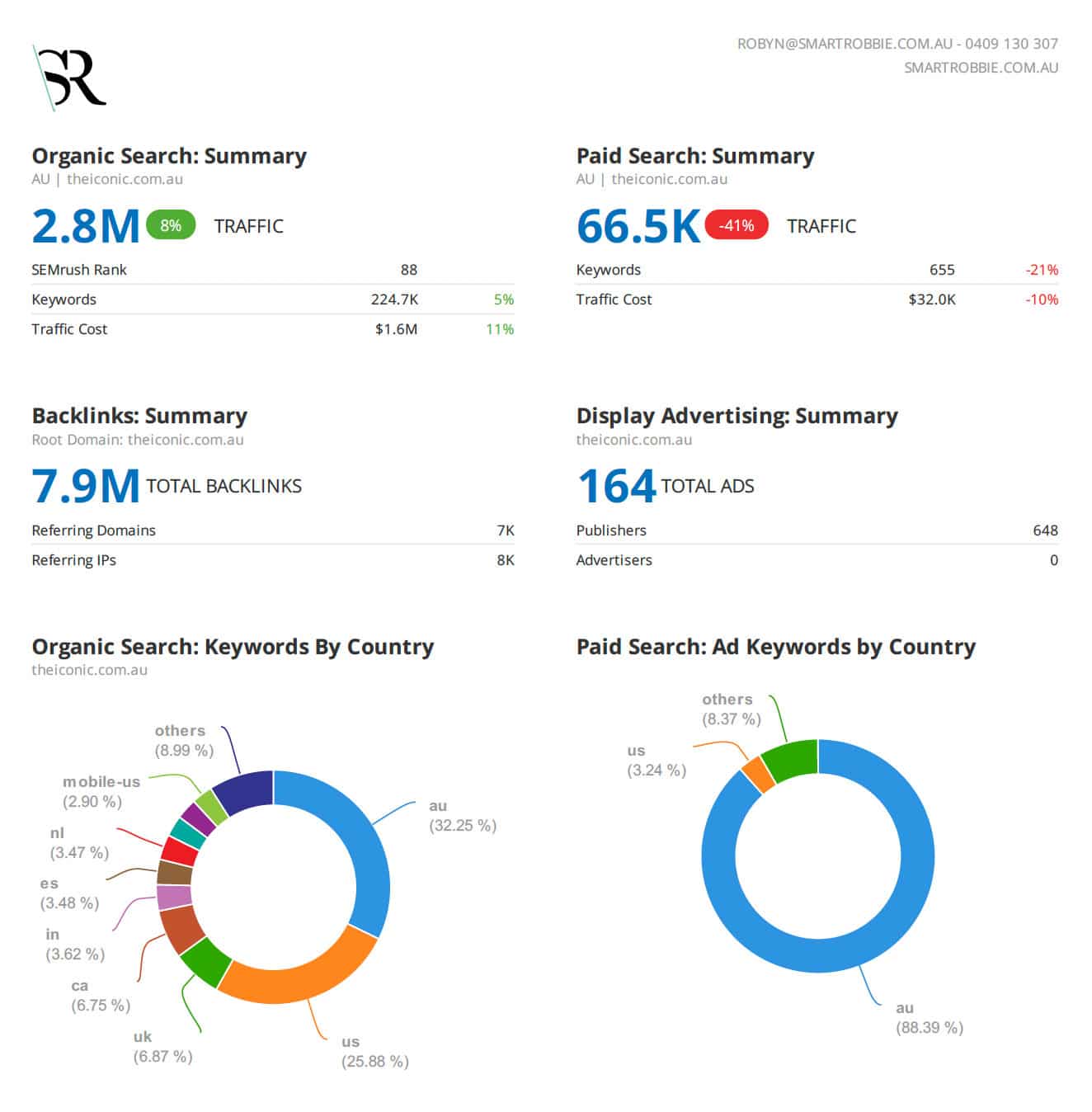
Final thoughts:
Competition is a very useful resource for your website. Use your competition to compete smarter, improve your services and offerings, adjust your marketing and SEO activities and give you a target to aim for.
SEO competition analysis is only one aspect of SEO. The methods listed in this article are only the tip of the iceberg when it comes to SEO competitive analysis, but it will help give you the insights and readily available data to help drive more traffic and awareness to your site.
My advice? Run through the process above, dig deeper, experiment to see what works for your business, then tweak where needed.
We would love to hear from you if you have done a competitor analysis before and what worked well for your business.
